06 Dec2019
By Caitlin Wilson

Faculty from 10 of AACTE’s member institutions convened in Washington, DC on November 22-23 for the first in-person meeting of the Networked Improvement Community (NIC) focused on reducing the shortage of the special education teachers. During the 2-day convening, nearly 40 NIC members came together to share and discuss the work happening at their institutions and their goals for recruiting more teacher candidates into their special education programs in the next 6 months.
Following the NIC model of the Carnegie Foundation’s for Foundation for the Advancement of Teaching, the institutions set individual targets connected to the network’s collective aim statement and driver diagram, which serves as the NIC’s working theory of action. Over the summer, faculty from each institution were invited to participate in a book club lead by AACTE staff: Learning to Improve: How America’s Schools Can Get Better at Getting Better. This book serves as a foundational text for the NIC members in understanding improvement science and how to apply it to their work at their institutions.
03 Dec2019
AACTE’s DEI Video Highlights Promising Practices to Recruit and Retain Teachers of Color
By Jerrica Thurman
Ed Prep Matters features the “Revolutionizing Education” column to spotlight the many ways AACTE, member institutions, and partners are pioneering leading-edge research, models, strategies and programs that focus on the three core values outlined in the current AACTE strategic plan: Diversity, Equity, and Inclusion; Quality and impact; and Inquiry and Innovation.
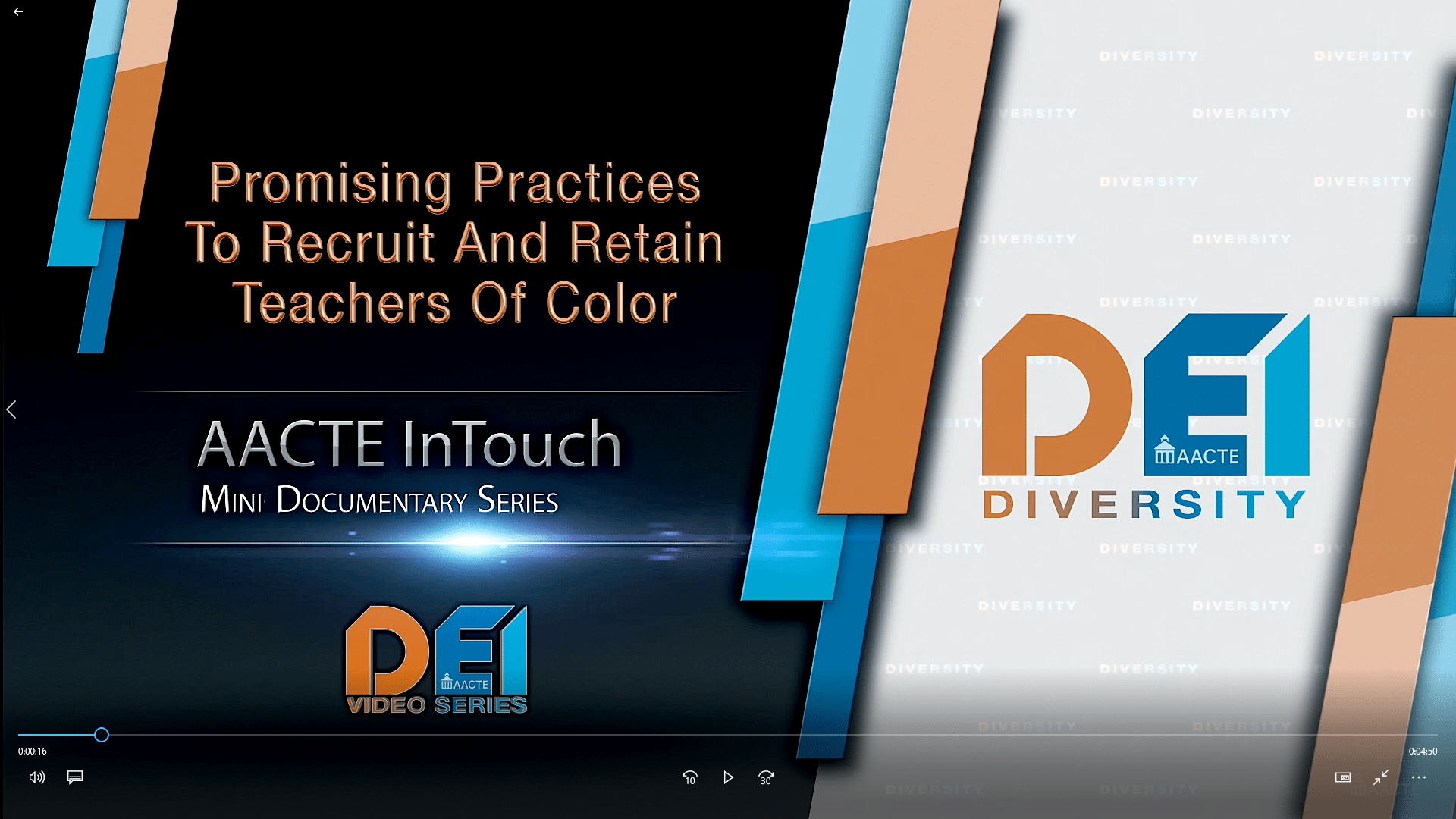
AACTE is focusing on ways that education leaders and colleges of education can employ to address the national shortage of educators of color more effectively. “AACTE’s new mission is to revolutionize education for all learners,” said AACTE Board Chair Kim Metcalf, dean of the college of education at the University of Nevada Las Vegas. “We are shifting our efforts to provide members support and encouragement to be innovative in ways that address not just today’s needs in their local communities, but the needs that those communities will have in years to come.”
22 Nov2019
By Katrina Norfleet
Ed Prep Matters features the “Revolutionizing Education” column to spotlight the many ways AACTE, member institutions, and partners are pioneering leading-edge research, models, strategies and programs that focus on the three core values outlined in the current AACTE strategic plan: Diversity, Equity, and Inclusion; Quality and impact; and Inquiry and Innovation.

AACTE recently released its 2020-2023 Strategic Plan, which includes a new vision statement: AACTE, its members, and partners collaborate to revolutionize education for all learners. Aligned with the new strategic plan, Ed Prep Matters is launching a new column called Revolutionizing Education to showcase the many ways the Association and member institutions are moving beyond traditional perspectives and are pioneering positive change in educator preparation.
The Revolutionizing Education column is an opportunity for member institutions and partners to share the leading-edge research, models, strategies, programs, and initiatives that focus on the three core values outlined in the new AACTE strategic plan:
- Diversity, Equity, and Inclusion
- Quality and impact
- Inquiry and Innovation
20 Nov2019
By Maria Hyler

On November 14, I had the privilege of moderating the first in a series of webinars produced through a partnership of AACTE and the Educator Preparation Laboratory (EdPrepLab). This webinar, “Social and Emotional Learning, Cultural Competence, and Equity in Teacher Preparation,” will be followed by three others focusing on transformative research and practice in educator preparation.
Joining me for the webinar were Nancy Markowitz of the Center for Reaching and Teaching the Whole Child, Patty Swanson from San Jose State University, Pat Norman from Trinity University, and Mari Jones from the HighTech High Graduate School of Education.
Both Trinity and High Tech High, where Norman and Jones teach, are members of the EdPrepLab network. EdPrepLab, which launched this year, is an initiative of the Learning Policy Institute and the Bank Street College of Education that aims to strengthen educator preparation in the United States by linking research, policy, and practice and by supporting and expanding preparation that is equity-focused, student-centered, and grounded in the science of learning and development.
14 Nov2019
By Ward Cummings

This article, written by AACTE Director of Government Relations K. Ward Cummings, originally appeared in the Daily News Opinion section and is reprinted with permission.
The civil rights leader Malcolm X once famously said that the most segregated hour in American life is high noon on Sunday. If he were alive today, he might also include those weekday hours between 9 a.m. and 3 p.m. when our children are in school.
This past May was the 65th anniversary of Brown vs. Board of Education. The occasion inspired numerous panel discussions, seminars and reports about how much or how little the state of education has changed in the last half-century. Sadly, considerable attention also was paid to the subject of how segregated American schools remain 65 years later.
06 Nov2019
By Jerrica Thurman

AACTE is excited to announce the release of its new video series on Diversity, Equity and Inclusion in educator preparation. The videos address a wide variety of topics ranging from promising practices for recruiting and retaining teachers of color, to the importance of culturally relevant teaching for growing the special education teacher pipeline, and also promoting equal access to quality teachers, just to name a few.
The video series exemplifies the Association’s new strategic priority to promote diversity, equity and inclusion. AACTE and its members value the diversity of students, their families, and educators; equity in access to high quality instructional environments; and the inclusion of all students, defined as access and opportunity in PK-20 classrooms.
31 Oct2019
By Cecelia Monto
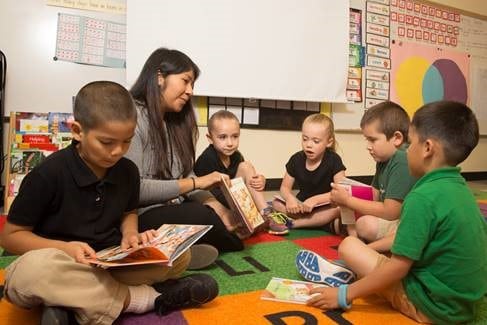
The need to diversify the teaching workforce is well documented (Darling-Hammond, 2010). Student demographics across the United States have significantly changed in the last 20 years, with particular increases in bilingual and Hispanic student populations (Aud, Hussar, Kena, Bianco, Frohlich, Kemp, &Tahan, 2011). However, the teaching workforce has not reflected the shift in student demographics, and a growing gap has emerged between the racial and ethnic backgrounds of students and teachers. Because community colleges serve a high percentage of diverse students, a community college pathway into teaching represents a promising approach for increasing the diversity of the teaching workforce.
31 Oct2019
By Jingzi Huang
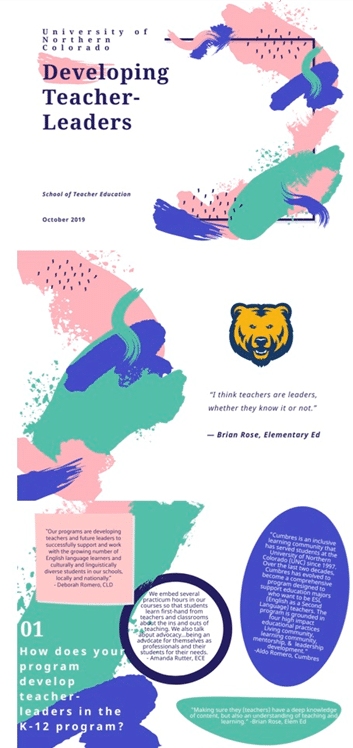
The University of Northern Colorado (UNC) holds a long-standing tradition of developing its future teachers as leaders in the community. Since 1889, the school has taken pride in its commitment to teacher excellence. However, never content to settle, the faculty and staff that constitute UNC’s School of Teacher Education (STE) continue to encourage the next generation of teachers to blaze their own trails and inspire change in their communities.
In addition to delivering the widest array of licensure programs in Colorado to meet the state and national needs, STE at UNC offers specialized licensure and endorsement opportunities within its diversity framework. Programs such as the Cumbres Teacher Preparation Program—an inclusive learning community that has served students at UNC since 1997—and Culturally and Linguistically Diverse (CLD) and Teaching English to Speakers of Other Languages (TESOL) endorsements urge teachers to utilize culturally responsive curriculum in the classroom.
Aldo Romero, the director of Cumbres, says the Cumbres program “is a co-curricular, student support services and scholarship program. Over the last two decades, Cumbres has evolved to become a comprehensive program designed to support education majors who want to be English as a Second Language teachers (ESL). The program is grounded in four high impact educational practices: living community, learning community, mentorship, and leadership development.” He also says that Cumbres educators are constantly “acquiring new knowledge and skills to support their development to become not only excellent teachers but also exceptional leaders in K-12 settings.”
29 Oct2019
By Jacqueline Rodriguez

AACTE is excited to partner with the Educator Preparation Laboratory (EdPrepLab), an initiative of the Learning Policy Institute (LPI) and Bank Street College of Education, to bring a series of webinars to members. Educator preparation programs across the country can access AACTE and EdPrepLab resources to support their teaching, research, and policy in higher education.
In this series of webinars, our members will hear from member institutions, stakeholders, scholars, practitioners, and policymakers as presenters dive into topics that will include addressing social emotional learning, cultural competence, creating inclusive classroom and school environments, and teacher residency models.
We hope you will register for our first webinar on Social and Emotional Learning, Cultural Competence, and Equity in Teacher Preparation that will take place on November 14 at 3:00 p.m ET. The panel of experts include:
18 Oct2019
By Lynn M. Gangone
Last month, the AACTE Board of Directors approved the Association’s new strategic priorities. Along with our new vision, mission, and core values, these priorities will guide AACTE’s work. Our values of diversity, equity, and inclusion; inquiry and innovation; and quality and impact will permeate all of our initiatives. Please take a few minutes to watch the video (or read the transcript) to learn more.
AACTE collaborates with its members and partners to revolutionize education for all learners. Learn more at aacte.org. And stay tuned for our November Board of Directors elections!
P.S. Secure your spot for AACTE’s 2020 Annual Meeting at the early bird rate by October 30!
15 Oct2019
By Justin Mattingly

This article and photo originally appeared in the Richmond Times-Dispatch and are reprinted with permission.
Calvin Sorrell was the only black male teacher Rodney Robinson had.
He taught in King William County for three dozen years and remembers Robinson as knowledgeable, caring and talented. Robinson was shy, though, lacking many teachers who looked like him.
“The potential was there; he just had to come out a little bit,” Sorrell said. “I knew he always had the ability.”
Robinson looked up to the one black male teacher he did have, who taught him how to play the trombone, baritone and tuba. He became a teacher to give students the teacher he had only once, among other reasons.
“Kids need positive role models,” Sorrell said of being a black male teacher. “It gives them someone to look up to, and he was no exception.”
It surprised him when Robinson became a teacher, but knowing Robinson now, a man driven to improve teacher diversity while getting to know his students, Sorrell was not shocked to find out last week that Robinson is the National Teacher of the Year.
20 Sep2019
By Lynn M. Gangone
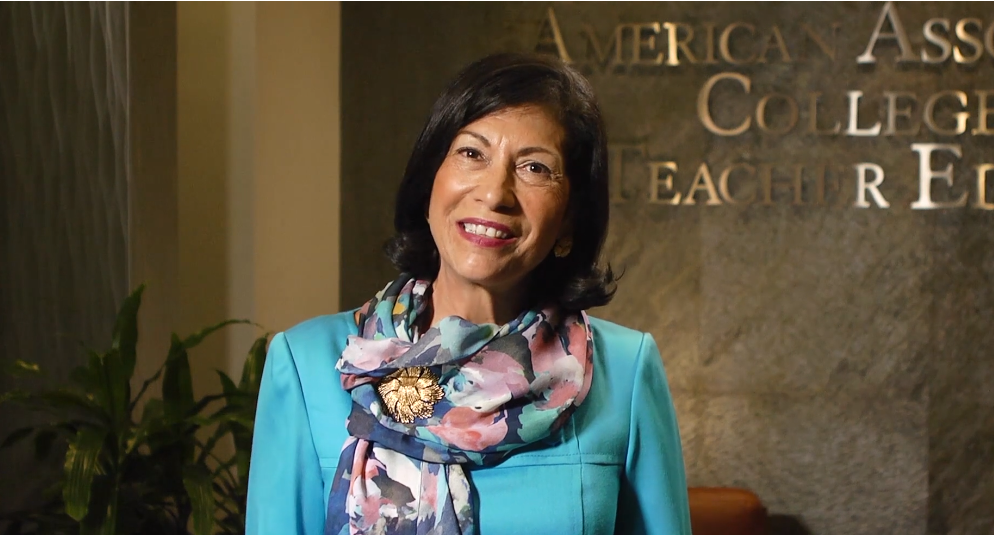
America is a country of immigrants. Through each wave of immigration, our public schools incorporate immigrant children into the fabric of our country. Our public schools serve as a cultural incubator to aid and nurture acceptance of diversity. Our local classrooms should be a microcosm of a global demographic. We, as educators, need to harness that belief for our teachers and the students they teach and guide.
How do America’s immigration challenges impact schools?
The challenge is that there are undocumented students entering U.S. schools, colleges, and universities who were not given the option to decide for themselves whether they wanted to come to this country. They have been incorporated into society, but are affected by current practices that impact their safety and security. It is projected that by the year 2040, one in every three children in the United States will grow up in an immigrant household (Suárez-Orozco, Suárez-Orozco, & Todorova, 2008). It begs the question: How do we work with those students?
Educators, school support staff, and service providers are often the first individuals in whom a student and/or family confides and reveals that they are undocumented. Recent efforts to identify undocumented parents and children in the United States challenge public schools in their efforts to meet the needs of all children residing within their school districts. Public schools are often embroiled in politically and legally sensitive situations, in which they must balance their responsibilities to serve immigrant and undocumented children, while meeting the expectations of local authorities to identify undocumented individuals.
What role do educators play in supporting immigrant children and their families?
19 Sep2019
By Kimberly Underwood

This article and photo originally appeared in EdSurge and are reprinted with permission.
Two percent. That figure may seem insignificant, until you understand the context. Despite students of color representing more than half the student population, Black males make up only two percent of the teacher workforce. So as it happens, that statistic is very significant as this lack of diversity has negative implications for all students.
For years, Black males have been underrepresented in PK-12 education. While there have been many efforts to diversify classrooms by adding more Black male educators, there are still obstacles preventing us from successfully reaching this goal. Now these educators are speaking up and their voices are sounding the alarm for education diversity.
For years, Black males have been underrepresented in PK-12 education.
13 Sep2019
By Madeline Will and Corey Mitchell

The excerpt below is taken from an article originally published in Ed Week and is reprinted with permission.
It’s a constant struggle for school districts across the country to find qualified special education teachers. An extra challenge: finding special educators of color to help meet the needs of a student population that can be disproportionately nonwhite.
Just over 82 percent of special education teachers in public schools are white, according to 2011-12 federal data, the most recent available. Meanwhile, only about half of students receiving special education services are white, according to 2017-18 data.
Yet teacher diversity matters: Decades of research has shown that students often perform better academically when they are taught by teachers of the same race.
“The special education field is really prime to recruit faculty of color,” said Jacqueline Rodriguez,
12 Sep2019
By Katrina Norfleet
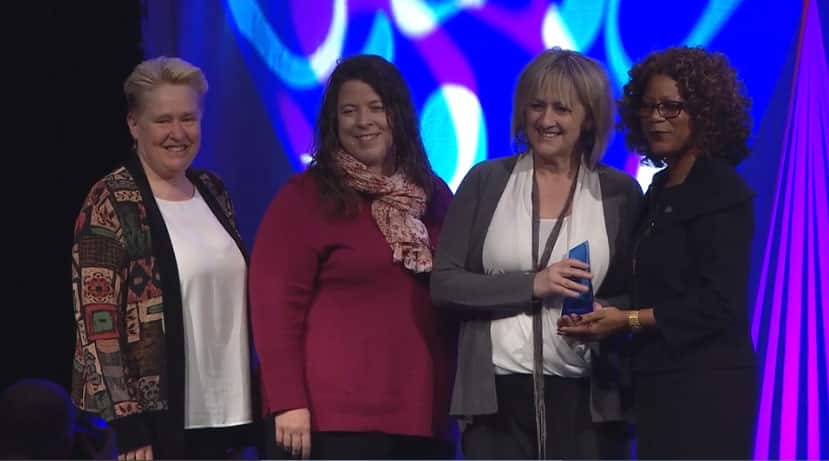
The annual Best Practice Award in Support of Multicultural Education and Diversity honors members for their outstanding work infusing diversity throughout all components of a school, college, or department of education (SCDE) as critical to quality teacher preparation and professional development. This award, sponsored by the Committee on Global Diversity, represents one of the nine categories of the annual AACTE Award Program that recognizes excellence in educator preparation.
This video features the 2018 Best Practice Award in Support of Multicultural Education and Diversity recipient, University of Colorado (UC) Denver School of Education and Human Development (SEHD). The Committee selected this program for it outstanding efforts in preparing teacher candidates from diverse, multicultural backgrounds to gain the foundational knowledge and experiences necessary to advocate for the educational equity for all children.



















